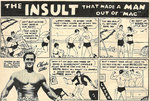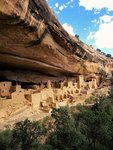It was a good day, I did not ride my bike I was too busy harvesting fruit. I picked about 2 bushels of peaches and 4 bushels of apples, that was probably more exercise than a bike ride. We are drying and freezing the peaches, will juice the apples tomorrow. This is the end of the peach harvest, and in a few days I will have to eat my last fresh peach for the year. I'll miss them. This is also the end of the apples, we have only 2 trees. Tomorrow will be busy juicing and processing. We also have peppers in the garden to salvage, and our farmer told us we were welcome to salvage all the tomatoes we can find from his plants. It looks to me like there are lots of ripe ones that will make good sauce. The frosts have killed most of the plants, but the peppers and tomatoes still on the vine are still good. We are supposed to get a hard freeze in a few days so have to get everything done before that.
I cannot post my food tonight, grandkids descended on us and my computer with my food spreadsheet seems to be busy with something called robolox tonight. I'm on my work computer. I'll get it tomorrow morning. My recollection was about 1,100 calories.
Do you know where the Anasazi people moved to? 23 years is a long drought!
That is a good question, and I have read a little about the Anasazi, enough to know there is no clear answer. Based on tree ring studies we know that drought was just the beginning of a kind of climate change here and 300 years of intermittent drought. The theory is that the Anasazi were not able to sustain their agriculture needed to support the folks in their cliff towns. The most accepted theory seems to be that they moved to other areas in the southwest, and their descendants are what we call Puebloans today; this includes the Hopi tribe. The Indians who live in the cliff dweller area today, but no longer in the cliffs, are the Navajo and it is agreed that they are not decadents of the Anasazi, in fact the word Anasazi is a Navajo word meaning "enemy ancestors". The preferred word today is "Ancestral Puebloans" but it is not widely used. And the word Puebloan was given by the early Spanish explorers who were impressed with the buildings and villages. The Hopi call them Hisatsinom, meaning ancient people, and given that the Hopi are likely Anasazi descendants that is probably the most correct name. Piecing together native american history is tough, I suspect you have similar problems trying to understand Australian Aboriginal history and culture.
I use the word Indian interchangeably with Native American, we all they are not really Indians, but it has become an ingrained word in our vocabulary and easier to write and say.
Amy, I agree it is fascinating, I only know enough to appreciate it and understand how little I really know.


